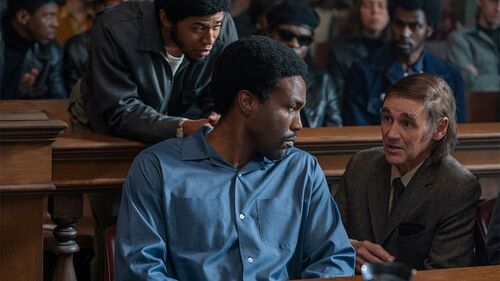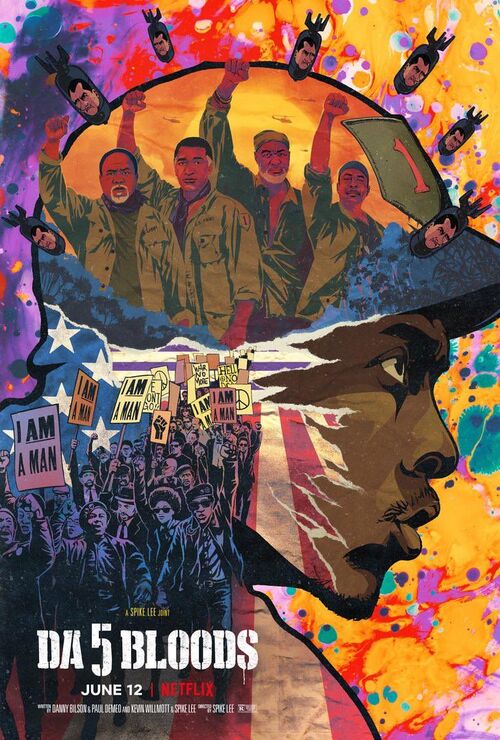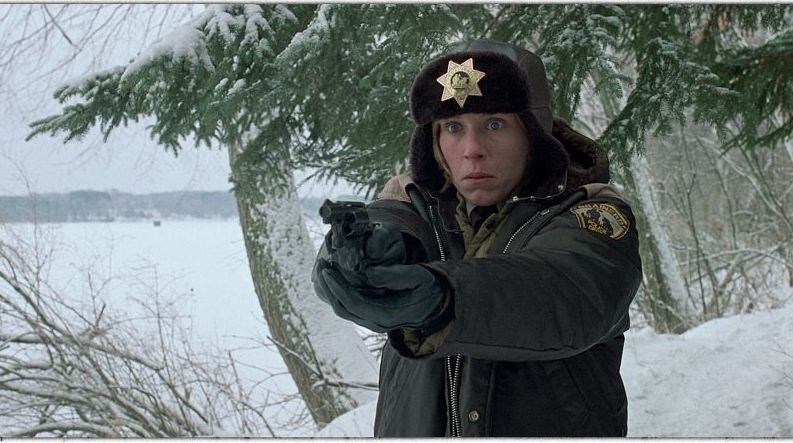
Fargo
 The 1996 Coen brothers classic Fargo begins: "This is a true story. The events depicted in this film took place in Minnesota in 1987. At the request of the survivors, the names have been changed. Out of respect for the dead, the rest has been told exactly as it occurred." We have a great opening here, that lends this film firmly to the ethos of truth being stranger than fiction. And indeed from where I stand, truth is stranger than fiction, but come on Joel, give us break Ethan. Fargo is as real as our politicians’ word.
The 1996 Coen brothers classic Fargo begins: "This is a true story. The events depicted in this film took place in Minnesota in 1987. At the request of the survivors, the names have been changed. Out of respect for the dead, the rest has been told exactly as it occurred." We have a great opening here, that lends this film firmly to the ethos of truth being stranger than fiction. And indeed from where I stand, truth is stranger than fiction, but come on Joel, give us break Ethan. Fargo is as real as our politicians’ word.
The Coen brothers can be extremely playful when they want, a fact I learnt later on as I got more acquainted with their filmography. If you’re asking, yes, I did buy into Fargo, because it’s not a ridiculous Takashi Miike narrative or toned like a Wes Anderson film. It carries a sense of blithe simplicity that lends it to real life. Fargo is ostensibly a black comedy centred on a zany kidnapping that goes left spectacularly. That said, it bears some eerily resemblance to the disappearance of a certain Danish flight attendant from her home in 1986. Her husband, against whom she had begun divorce proceedings, was arrested, tried, and convicted for her murder. The police theory on how the murder may have been carried out bears some resemblance to some of the occurrences (*cough the woodchiper cough*) in Fargo. Maybe this film is, at most, inspired by a true events, but then the film comes with the standard “no resemblance to any persons living or dead ..." so yeah, don’t take it too seriously.
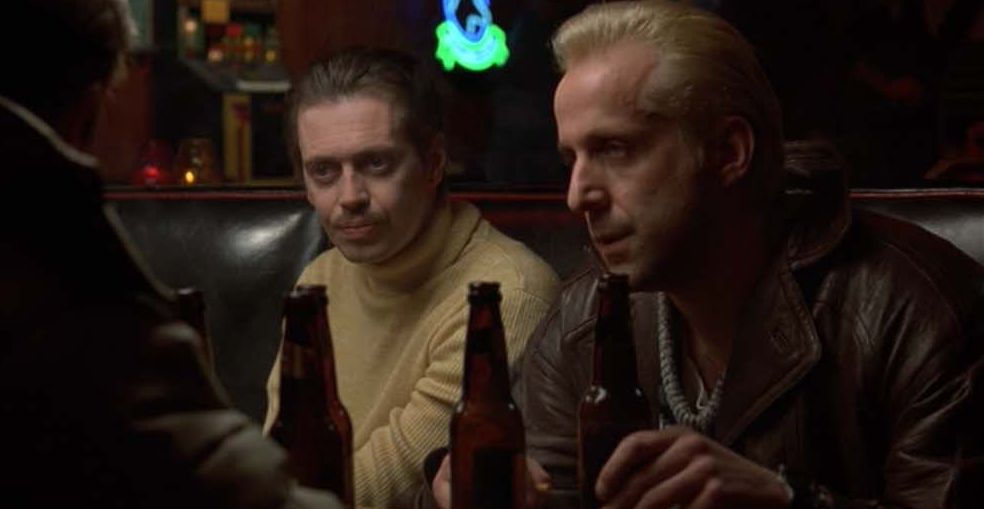
I have already noted an underlying simplicity at work here and the Coen’s use this as the canvas to paint an amusing portrait of crime, absurdity, satire and violence. William H. Macy plays Jerry Lundegaard, car salesman and the kind of desperately inept individual Macy excels at playing. Over here he needs money for a business deal that will save him from bankruptcy, so he hires a couple of criminals, the weaselly talkative Showalter (Steve Buscemi) and the cold man-of-few words Grimsrud (Peter Stormare), to kidnap his wife in the hopes of splitting and a 80,000 dollar ransom. The plan is to have Jerry’s rich domineering father-in-law (Harve Presnell) pay up, but more levels of greed and deceit await. The kidnapping goes relatively well, but intangibles and carelessness come into play and soon we are served an eruption of violence that leaves three people dead.
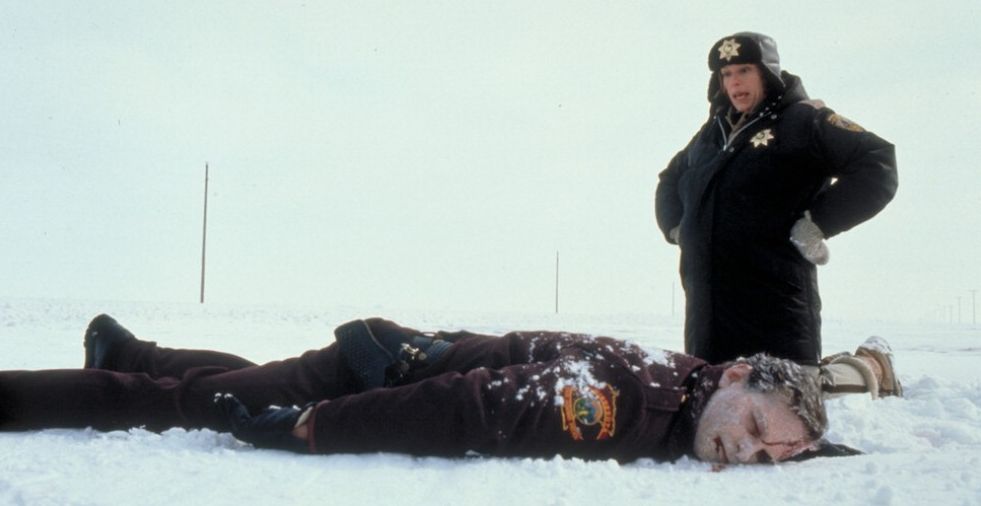
The bodies are found the next morning frozen by the highway. Enter Frances McDormand’s Marge Gunderson in a GOAT performance. Marge Gunderson is the police chief of the jurisdiction in question (Brainerd, Minnesota). She carries the most cheerful disposition to a murder scene you will ever see in cinema. She (and almost everyone) talks with this European countryside diction, and she carries herself with this seeming naivety and plainness that marks this film. Oh and she’s also heavily pregnant. She’s good police though (take that sexists). At the crime scene, she reconstructs the crime correctly and proves why she is the chief of police. She does some police work and follows some leads to Jerry Lundegaard's workplace. At this point Jerry is overwhelmed by guilt and the crime he just instigated. A number of key loose ends pop up, like the car he procured for the two kidnappers, but the walls seem to be closing in on him fast. He clearly isn’t cut out for crime and his fumbling days are numbered.
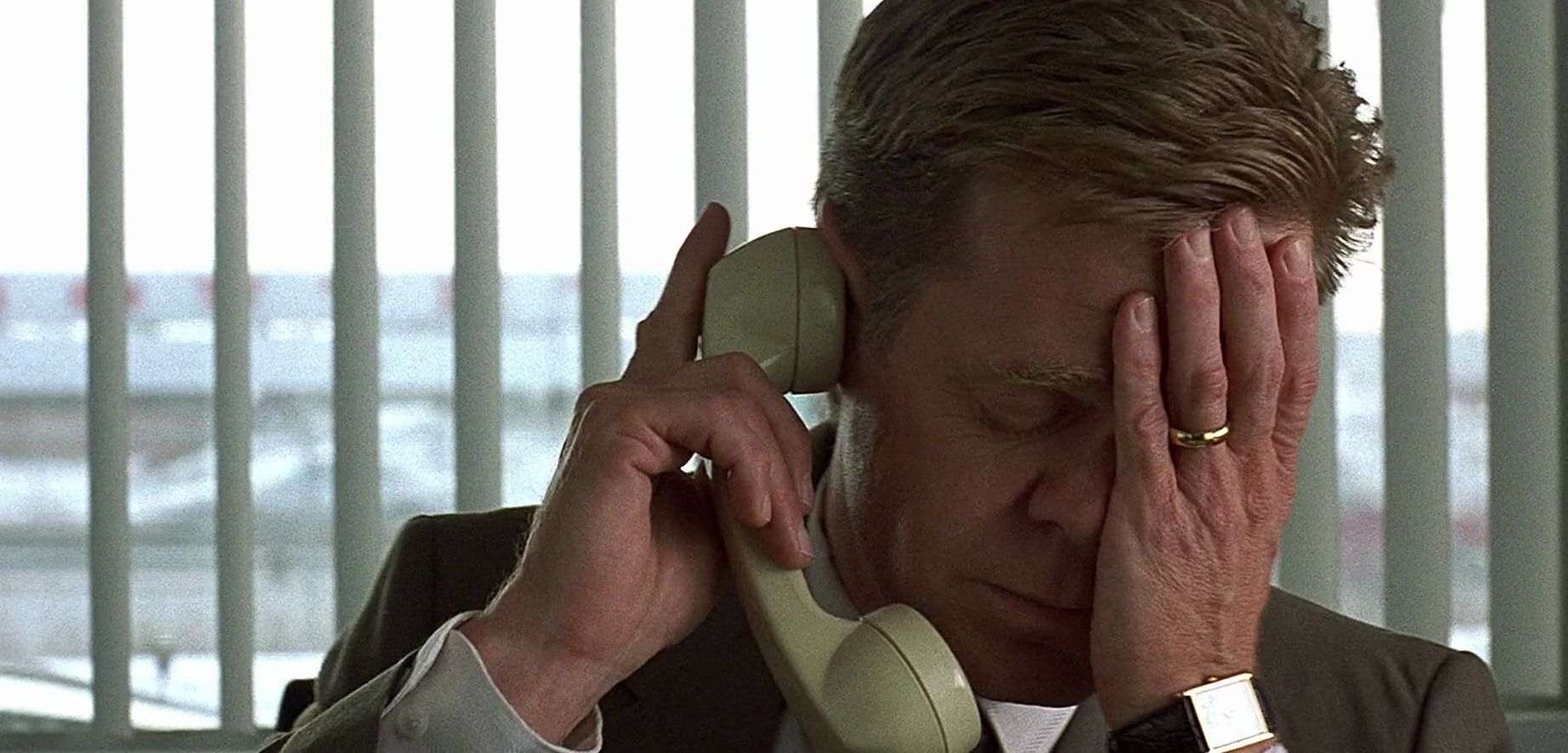
Again I jump back to the surreal simplicity that marks this film. The greed, kidnapping and murders are almost an intrusion on “a beautiful day” and the everyday lives of our characters. The pregnant Marge is awoken way too early with the news of the murders and her hubby, Norm (John Carroll Lynch), is just worried about her having breakfast. The next time we see him he’s bringing Marge some lunch. There is some odd detail to some of the supporting cast. Norm is taking part in some painting competition and he also has a fascination with worms. I doubt they were for fishing trips with the weather and all. There’s the persistently amusing description of Buscemi’s character as “funny looking” like it was something everyone was expected to get. And the small matter of Jerry being the only man in Minnesota not into hockey.
I should also note the weird meet Marge has with her old high school friend, just because. Lest we forget, three bodies have been dropped in the midst of all this. This simplicity is probably rammed by the earnestness of McDormand’s performance. Towards the end, when the dust (or snow) has settled, the feeling isn’t one of closure as much as it is understated bafflement. “There’s more to life than a little money you know. Don’t you know that?” Marge says. “I just don’t understand it,” she finally says with a pensive look on her face, and I bought it. It is such a naïve disposition, but a reasonable one in the context of this brilliant film.

The screenplay by Ethan Coen is littered with enjoyable dialogue to go with the amusing characters, and Joel somehow manages to make the white icy atmosphere of Minnesota quite cinematic and appealing. The film is well plotted and the scenes are well constructed. Just consider the kidnapping scene – one of the most memorable in film I assure you. Fargo has since gone on to spawn the acclaimed series which builds on this world and Kumiko the Treasure Hunter (starring Rinko Kikuchi), which is riff on the accuracy of this story. Again I say people – NOT a true story.
